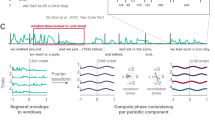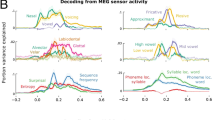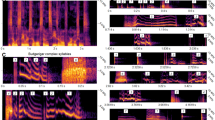Abstract
ANALYSIS of a macrophonic registration1 of ” Devon to Me !” spoken, by John Galsworthy2 showed that 15 of the 40 lines of the poem had a rhythmic form indicated by ; an example is the line ” Where my fathers stood”. This is the form known in ancient Greek metrics as the hypodochmius (for example, ” Oed. rex”, 1208). Twenty lines had the form ; an example is ” Watching the sea”. This is the choriambus, a very common ancient form. Five lines had the form as in ” Taste of the cream pan !” This is the form termed adoneus. Every line of the poem was spoken with some form of ancient Greek rhythm. The registration of the first stanza of ” Drake's Spirit” by Galsworthy himself showed that the line ” I, Francis Drake” had the rhythm of the third epitrite as in ” Medea”, 628, and that the line ” When the land needs” had the rhythm of the rising ionic as in ” Phoen.”, 1539.
This is a preview of subscription content, access via your institution
Access options
Subscribe to this journal
Receive 51 print issues and online access
$199.00 per year
only $3.90 per issue
Buy this article
- Purchase on Springer Link
- Instant access to full article PDF
Prices may be subject to local taxes which are calculated during checkout
Similar content being viewed by others
References
See NATURE, 132, 138; 1933.
Janvrin, ” Analyse von zwei von John Galsworthy gesprochene Gedichten”, Z. Exper.-Phon., 32, I, 147; 1930.
Scripture, ” Anwendung d. graphischen Methode auf Sprache u. Gesang”, 73, Leipzig, 1927.
Author information
Authors and Affiliations
Rights and permissions
About this article
Cite this article
SCRIPTURE, E. Experimental Phonetics and Ancient Greek Verse. Nature 136, 340–341 (1935). https://doi.org/10.1038/136340c0
Issue Date:
DOI: https://doi.org/10.1038/136340c0
Comments
By submitting a comment you agree to abide by our Terms and Community Guidelines. If you find something abusive or that does not comply with our terms or guidelines please flag it as inappropriate.



